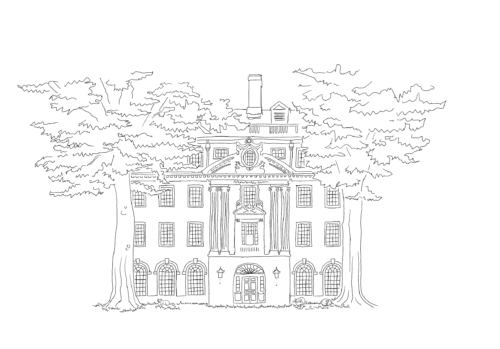Harvard undergraduates hail from nearly 100 countries. Additionally, many American students have immigrant parents and strong ties to their cultural heritage. With such a variety of cultural backgrounds, students have created over 50 cultural organizations, from the Polish Society to the Caribbean Club, and everything in between.
However, where there is cultural diversity, there is also political diversity, and many geopolitical conflicts can breed division within these organizations. This is especially true for groups that aim to bring together many different cultures, such as the South Asian Association (SAA). “We are an organization that brings together students from many different cultural, religious, and often political backgrounds,” said Fez Zafar ’24, the current co-social chair of SAA. Being Punjabi himself, Zafar referenced the longstanding geopolitical conflict between India and Pakistan as a potential source of disagreement among those of other South Asian cultural backgrounds.
However, political disagreement does not prevent students from bonding over shared cultural heritage. For Zafar, the prime example of how SAA sows seeds of connection is through Ghungroo, the annual performance of cultural dances, songs, and skits that celebrates cultural diversity across South Asia. As Zafar said, “Ghungroo operates as a strong vehicle at Harvard, not only for students to… have a glimpse or perspective of the many nuances of South Asia, but it also allows them to directly participate, for example, by dancing in the styles of Nepal, which is something you have very little opportunity to do otherwise.”
For other geopolitical conflicts, like those between China and Taiwan, discussions can sometimes end in more tension than resolution. According to Derek Hwang ’24, co-president of the Taiwanese Cultural Society, “We constantly get asked about our position on Chinese politics. We have a very strict policy of no political talk, in a way. We usually have a lot of keynote speakers from Taiwan, and sometimes they’re government officials or associated with independence movements or any side of Taiwanese politics, and we talk to them and say we’re strictly a cultural organization… We make it clear that anyone with any political standpoints can join the club. There are other places and clubs at Harvard to have political discussions.”
The Chinese Student Association (CSA) takes a slightly different approach. Vice president Christopher Poon ’24 pointed to their Education and Politics Committee as the center of CSA’s activism. This activism does not focus on geopolitical conflicts or greater Chinese politics, but instead on issues facing Asian-Americans here in the United States through letters, policy, and volunteering. “For a lot of Asian-Americans, geopolitical issues are not as important as the issues we face in our everyday life, so those larger geopolitical issues are a little further removed from us,” Poon said. He defers to other organizations, such as Harvard College China Forum, to tackle these types of conversations.
However, some organizations find the cultural and the political to be inextricably linked, such as the Palestinian Solidarity Committee, which is currently in the midst of “Israel Apartheid Week.” A cultural-political dynamic also persists in the South Asian Women’s Collective, whose mission is to facilitate conversations surrounding gender and decolonization.
Zafar said SAA wouldn’t be opposed to geopolitical discussions if they were ever needed, but by prioritizing celebrating culture, the club facilitates bonds that transcend political beliefs and do more good in the long-term. Hwang emphasized community building as his primary goal: “we try not to talk about politics too much, because even people from Taiwan have very different views. This is a safe place for people to come together and celebrate Taiwanese culture.”
Kate De Groote ’24 (katedegroote@college.harvard.edu) writes for the Independent.

